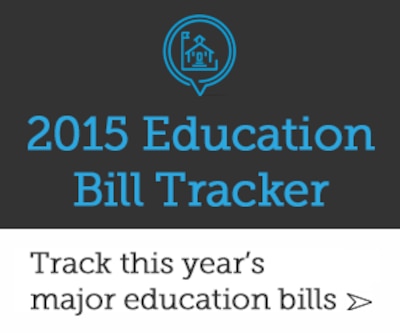A rare Friday session of the House Education Committee aired parent concerns about the privacy of student educational data, but committee decisions on a key data bill won’t come until next week.
Senate Bill 15-173 passed the Senate unanimously more than a month ago, and since then a lot of behind-the-scenes lobbying has been going on in the House.
For now, the bill’s major provisions prohibit educational data companies from sharing, mining, selling or using personally identifiable student data, and from compiling such data for commercial uses. The bill also would ban direct marketing to students based on their individual data. (See this story for details.)
But technology industry lobbyists are concerned that the bill doesn’t properly differentiate among different kinds of data companies, and don’t like a provision requiring companies to post detailed information about school district contracts on their websites.
Parent activists told committee members Friday that they like the bill as is.
“Support this bill as it came over from the Senate,” said Rachel Stickland of the Parent Coalition for Student Privacy. “I urge you to please listen to the parents and not those who are paid to gut this bill.”
“This bill was purposely written to not put the burden on school districts,” said Fort Collins parent Cheri Kiesecker in reference to the proposal that would shift transparency requirements away from vendors and on to districts.
No proposed amendments have yet been offered in the committee, which was scheduled to consider the bill Wednesday but ran out of time after hearing only a few witnesses.
The data bill is on the committee’s Monday afternoon calendar, but chair Rep. John Buckner, D-Aurora, indicated the panel might or might not get to it. The committee also has four Republican-sponsored testing bills scheduled for that meeting. All are expected to be killed.
Other bills do move on
House Education did take action on two bills, sending both to the House Appropriations Committee.
House Bill 15-1339 would streamline some district financial reporting requirements approved by the 2014 legislature. That law mandated that detailed information, broken down to the individual school level, be both reported to the state for use on a central website and posted on individual district sites.

School districts have seen the 2014 law as onerous (see story), and this year’s bill would remove the requirement for posting on individual district sites.
The statewide financial transparency site isn’t supposed to go live until 2017.
House Bill 15-1273 would update – and provide some funding for – the system by which school incidents are reported to the state and, ultimately, to the public. Among other things, the bill would require separate reporting of marijuana-related incidents and of sexual assaults, two things that now are included in catchall categories.
The bill also would create a new, more streamlined way for police and sheriffs’ departments and district attorneys’ offices to report school-related incidents to the state.
The committee heard testimony on the bill a month ago, but the measure has been in the shop while sponsor Rep. Polly Lawrence, R-Littleton, worked out some issues with school districts, police and other interest groups.
For the record
During a floor session that listed into early afternoon, the House voted preliminary approval of these education bills:
- House Bill 15-1317 – The “pay for success” measure that would allow private investors and philanthropists to fund social services such as early childhood programs drew support at the microphone from both Democrats and Republicans (background here).
- House Bill 15-1326 – There was no debate on the proposal intended to protect the college admissions prospects of students who hold diplomas from high schools in unaccredited districts (background here).
The Senate Appropriations Committee voted 4-3 to kill House Bill 15-1104, the proposal that would have offered a very modest tax deduction to teachers who paid for school supplies out of their own pockets.

